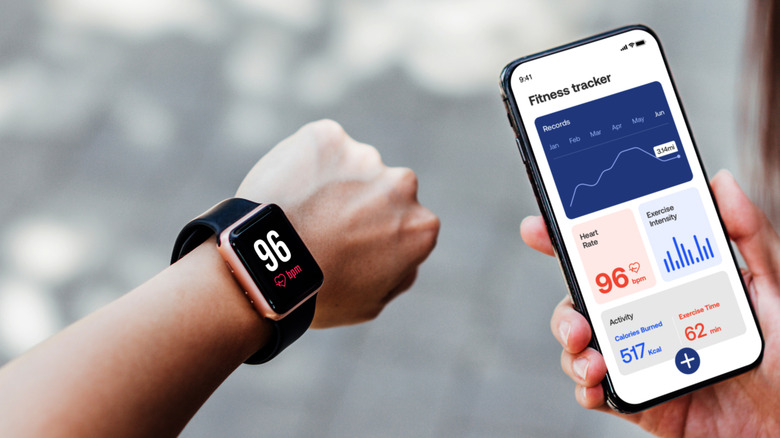Earlier this month, research published in the Cell journal highlighted the importance of biomarkers collected by a smartwatch in predicting psychiatric illnesses such as ADHD and even linking them to potential genetic markers. This won’t be the first wearable-related breakthrough of its kind. The segment is no longer niche, and we already have millions of smartwatches out there capable of ECG and even detecting serious problems such as AFib.
Advertisement
Smartwatches rely on algorithms to make sense of the data collected by the biosensors, which means there’s still a lot of raw data that could shed more insights into our health, but they just haven’t been fed to algorithms to get more out of them. A doctor can already do that, but it seems most smartwatch users are making a grave mistake on this front. According to a survey courtesy of The Ohio State University Wexner Medical Center, only a fraction of Americans who rely on smartwatches for health monitoring share the data with their doctor.
Nearly two-thirds of the participants reported using a smartwatch to keep an eye on their heart health, but only a quarter of them discussed the data with their doctor or healthcare provider. “Of those who use a device, only 1 in 4 use that data to prompt a conversation about their heart health with their doctor,” says the institution. The repercussions of such behavior could be serious, especially in emergency situations.
Advertisement
A doctor knows more than the algorithms
“These self-monitoring devices are really helpful to patients and their healthcare providers because they can potentially catch things early,” notes Dr. Laxmi Mehta, an expert in heart illnesses and cardiology. She further added that if users catch a whiff of irregular heart rhythm on their smartwatch, it could help tackle serious problems such as Atrial Fibrillation much quicker than it would take a doctor to perform a full suite of regular tests over an extended period.
Advertisement
The biosensing data collected by a smartwatch is a treasure trove of information. But users don’t necessarily have to wait for their smartwatch to narrow down the imminent problem if there’s any irregularity in their heart rate, sleep activity, or blood pressure measurements. A certified medical professional, however, can take a peek at this data and link it to a wide range of issues rather than limiting it to sleep or heart-related problems.
“Heart rates can vary due to heart conditions or a variety of non-heart related reasons such as infection, dehydration, anxiety or thyroid disorders. When someone’s heart rate or rhythm seems different than usual, it’s best for them to speak with their doctor,” explains Dr. Mehta. Another factor is digital literacy, especially when it comes to making sense of any oddities in the long-term record of sleep patterns, heart activity, blood pressure graphs, or blood oxygenation metrics. Only a trained expert can deduce if the irregularities are a sign of a serious problem and whether it needs urgent intervention.
Advertisement
Your smartwatch is a lab on its own
Over the past few years, research has shed light on the value of biomarkers collected by mass-market labels such as Apple Watch and Fitbit. Work is already underway on using this valuable data for predicting an early onset of Parkinson’s disease. The corpus of research and meta-analyses suggests that smartwatches can prove to be a valuable tool for tackling and warning about respiratory infections, neurological issues, cancer, and Lyme disease, to name a few. They can also prove to be a fantastic tool for preventive care.
Advertisement
For example, experts and researchers have highlighted how smartwatches can help users avoid UV exposure by keeping an eye on the UV index, helping reduce the threat of skin cancer. “They represent a valuable opportunity to better understand both the UV and non-UV environmental, occupational, and avocational exposures that may contribute to the development of skin cancer,” says one such research paper. Stanford experts developed a smartwatch app that was capable of detecting signs of infection in the body when it detects abrupt changes in the heart rate pattern, among other data collected by a wearable device’s sensor. The team originally built and subsequently validated its findings on a Fitbit smartwatch.
Advertisement
Detecting signs of sleep apnea is already a feature you can find on Apple and Samsung smartwatches. Research is also underway to use smartwatches for detecting signs of depression and anxiety. The sum total of these findings is that your smartwatch is a goldmine for critical data that can help a doctor more accurately look for signs of any prevailing or imminent health problems.





